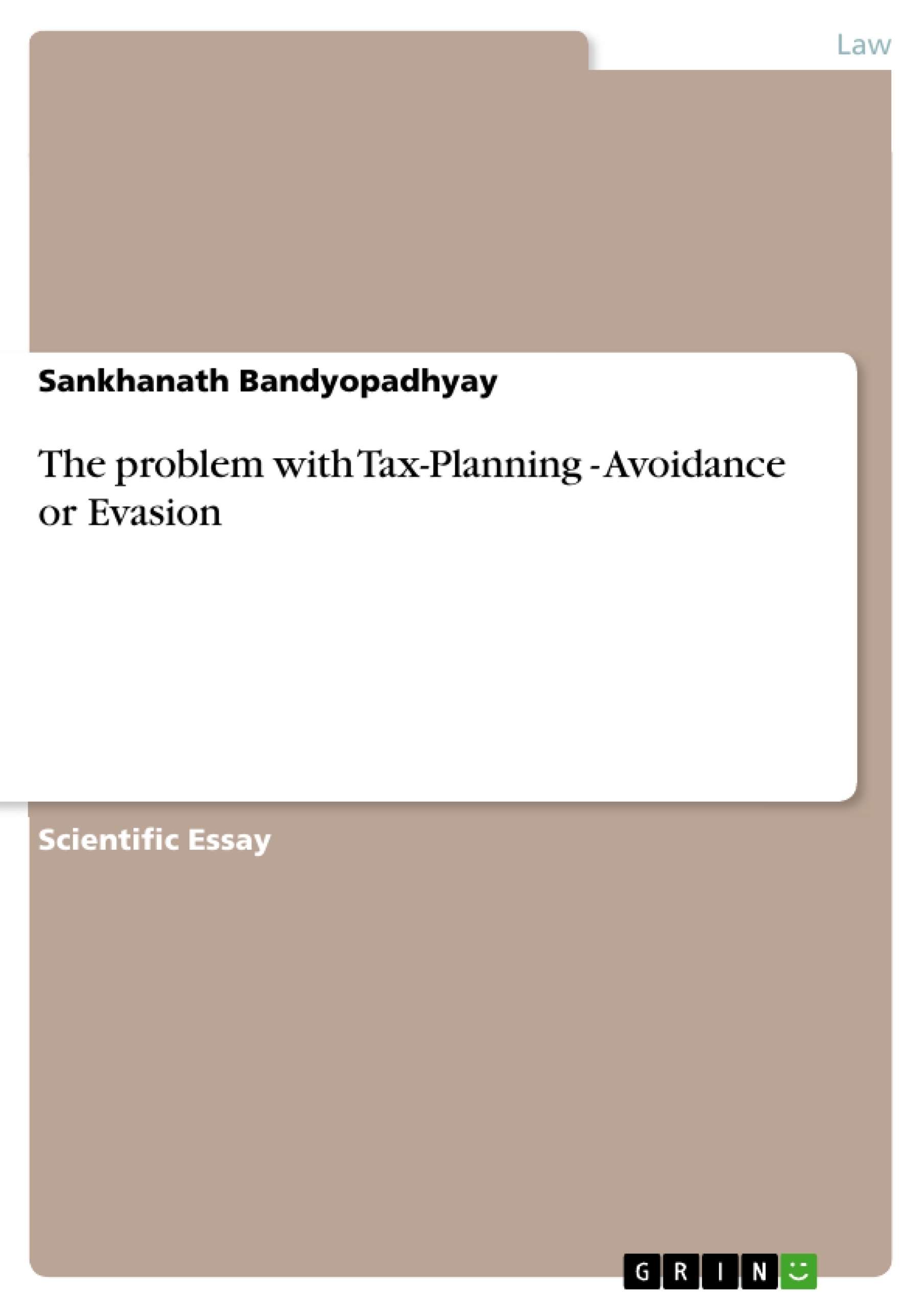The recent verdict by Supreme Court on Vodafone case generates fresh debates on whether India needs to review her existing legal provisions particularly with respect to offshore tax laws. In this
context, formal treatment and clear demarcations between tax evasion, tax avoidance and tax planning practices are imperative. The Standing Committee on Finance in its 49th Report on Direct Taxes Code bill, 2010(submitted to Parliament on 9th march, 2012) recommended Controlled Foreign Corporations (CFC) rules, Advance Pricing Agreement (APA) along with General Anti Avoidance Rule(GAAR) provision to replace the Income Tax Act, 1961 as per the International Taxation Standard and also in line with the recent Chinese Corporate Income Tax (CIT) Law introduced in 2008 to deal with offshore transactions via holding companies. Whereas introduction of GAAR is essential given the limited applications of a specific or targeted anti avoidance rule, the Committee also acknowledges the need for an appropriate Dispute Resolution Panel (DRP) as GAAR might result in a disproportionate discretionary power for the Income tax authority. The appropriate application of GAAR provision assumes a crucial role, in particular with countries
lacking any Limitations of Benefit (LOB) clause (e.g. Mauritius) with India. Before entering into litigation, it might be beneficial to settle tax disputes through a bilateral negotiation in the form of
Mutual Agreement Procedure (MAP), where tax authorities of the respective countries negotiate to settle disputes in a cordial manner.
Table of Contents
- Introduction
- The Supreme Court Verdict on Vodafone
- The background of the case and Issues
Objectives and Key Themes
This article explores the complex legal and economic issues surrounding tax avoidance and evasion, specifically in the context of offshore transactions and international tax law. The author examines the recent Supreme Court verdict in the Vodafone case, providing insights into the challenges of defining and addressing tax noncompliance in a globalized world.
- Tax evasion, avoidance, and planning
- International tax law and its application to offshore transactions
- The Vodafone case and its implications for India's tax system
- The role of transfer pricing in tax avoidance
- The need for clear legal definitions and effective dispute resolution mechanisms
Chapter Summaries
The article begins by exploring the distinctions between tax evasion, avoidance, and planning. It emphasizes the growing importance of addressing tax noncompliance, particularly in the context of offshore transactions. The author provides a detailed account of the Vodafone case, outlining the transaction, the arguments presented by the Indian Tax Department, and the defense arguments made by Vodafone.
Keywords
This text examines key issues surrounding tax noncompliance, offshore transactions, international tax law, and dispute resolution mechanisms. It highlights the Vodafone case, transfer pricing, and the need for clear definitions and effective enforcement of tax laws in a globalized world.
Frequently Asked Questions
What is the main difference between tax avoidance and tax evasion?
Tax planning is legal structuring of finances, while tax evasion is illegal non-compliance. Tax avoidance often involves using legal loopholes to reduce tax liability, which can lead to legal disputes.
What was the significance of the Vodafone case in India?
The Supreme Court verdict on the Vodafone case sparked debates on offshore tax laws and the need for clearer legal provisions regarding international transactions via holding companies.
What is GAAR (General Anti Avoidance Rule)?
GAAR is a provision designed to prevent tax avoidance by allowing authorities to deny tax benefits for transactions that lack commercial substance and are primarily intended for tax reduction.
How does transfer pricing relate to tax avoidance?
Transfer pricing involves setting prices for transactions between related entities in different jurisdictions, which can be manipulated to shift profits to low-tax regions.
What is the Mutual Agreement Procedure (MAP)?
MAP is a bilateral negotiation process where tax authorities from different countries work together to settle tax disputes in a cordial manner before entering into litigation.
- Arbeit zitieren
- Sankhanath Bandyopadhyay (Autor:in), 2012, The problem with Tax-Planning - Avoidance or Evasion, München, GRIN Verlag, https://www.hausarbeiten.de/document/199994


